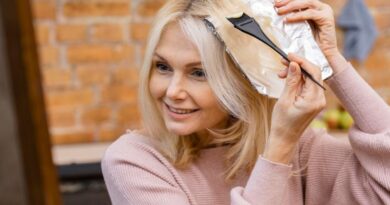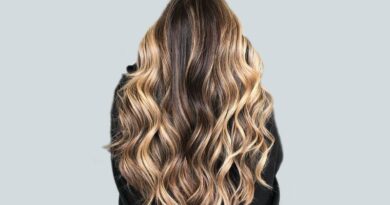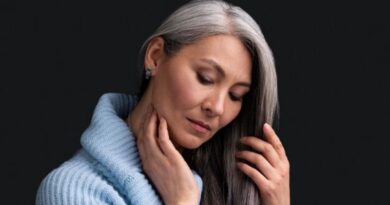Welcome to a comprehensive exploration of foods for healthy and shiny looks. The saying “you are what you eat” holds true when it comes to achieving a glowing appearance. This guide delves into a variety of foods known for their ability to nourish your body from within, enhancing your natural beauty and radiance.
From the vibrant hues of fruits and vegetables to the goodness of omega-3-rich fish and the antioxidants in nuts and seeds, we uncover a range of nutritious options that can positively impact your skin, hair, and overall appearance. These foods aren’t just about superficial beauty; they play a vital role in supporting your body’s health, ultimately reflecting in your outward appearance.
Learn how a diet rich in vitamins, minerals, and essential nutrients can work wonders, providing the foundation for healthy skin, lustrous hair, and an overall radiant look. Join us on this journey to discover the power of food in achieving a healthy, vibrant, and naturally radiant appearance.
Top Foods for Healthy and Shiny Looks
Almonds
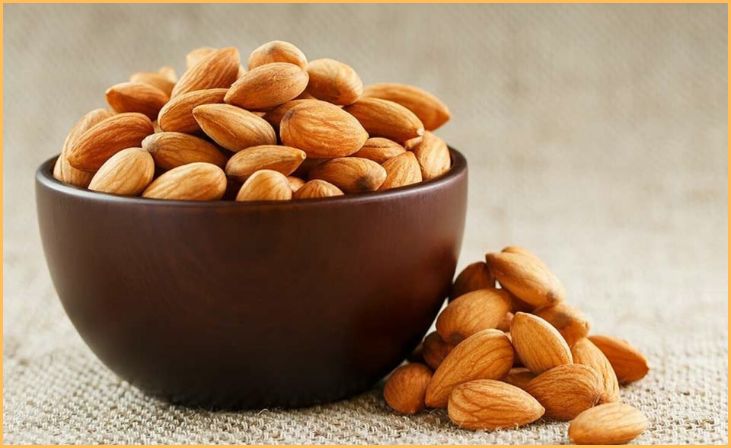
Almonds, known for their crunchy texture and delicate flavor, are nutrient-dense tree nuts packed with essential vitamins, minerals, and healthy fats. They are a rich source of vitamin E, biotin, magnesium, and antioxidants, contributing to heart health, skin vitality, and overall well-being.
These versatile nuts offer a range of health benefits, including supporting brain function, aiding in weight management, and promoting bone health due to their calcium content. Additionally, their monounsaturated fats and fiber help regulate blood sugar levels.
Almonds make a delicious and nutritious snack when eaten raw or roasted, and they enhance both sweet and savory dishes, from salads to baked goods. Incorporating almonds into a balanced diet can elevate nutritional intake and provide a satisfyingly crunchy and wholesome addition to various meals and snacks.
Oranges
Oranges are vibrant citrus fruits cherished for their tangy sweetness and abundant health benefits. Packed with vitamin C, fiber, antioxidants, and essential nutrients like potassium, oranges boost immune health, aid digestion, and support heart function.
These juicy fruits promote skin radiance, improve collagen production, and contribute to overall well-being. Their antioxidant content helps fight inflammation and protects cells from damage.
Oranges are a versatile fruit enjoyed in various forms—from freshly squeezed juice to segments in salads or desserts. Their refreshing taste adds a zesty kick to recipes and beverages, offering a burst of flavor and nutrition.
Incorporating oranges into a balanced diet provides a range of health benefits, making them a delightful and nutritious addition to daily meals, snacks, and refreshing beverages.
Also Read: 8 Best Haircuts For Boys With Curly Hair
Broccoli
Broccoli, known for its vibrant green hue and distinctive shape, is a nutrient-packed cruciferous vegetable celebrated for its exceptional health benefits. Rich in vitamins C, K, and A, along with folate, fiber, and antioxidants, broccoli supports immune function, bone health, and digestion.
This versatile veggie offers an array of health benefits, including aiding in cancer prevention, reducing inflammation, and supporting heart health due to its sulforaphane content. Its high fiber content aids in digestion and promotes gut health.
Broccoli can be enjoyed steamed, roasted, sautéed, or raw in salads, providing a crunchy texture and earthy flavor. Its adaptability in various dishes makes it a staple in diverse cuisines.
Incorporating broccoli into meals adds a nutritional punch, making it an essential and delicious component of a well-balanced diet, promoting overall health and vitality.
Flaxseeds
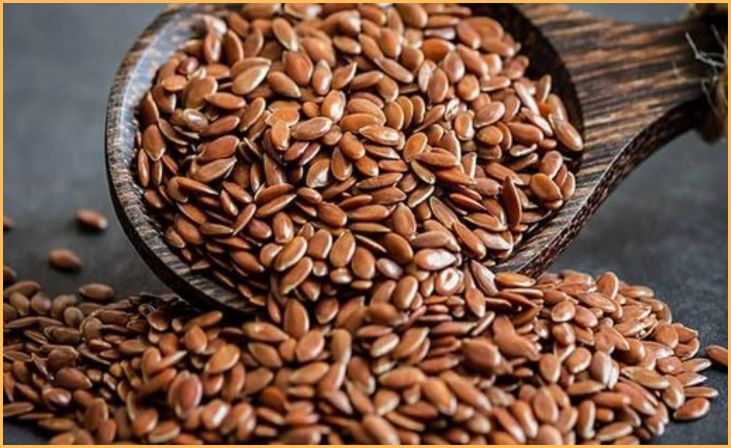
Flaxseeds, tiny nutritional powerhouses, are rich in omega-3 fatty acids, fiber, and lignans, offering an array of health benefits. These small seeds promote heart health by reducing cholesterol levels and supporting cardiovascular function.
Packed with antioxidants, flaxseeds aid in reducing inflammation, supporting skin health, and boosting the immune system. Their high fiber content aids in digestion and helps regulate blood sugar levels.
These versatile seeds can be added to smoothies, yogurt, baked goods, or sprinkled on salads, providing a nutty flavor and a crunchy texture. Ground flaxseeds are more easily absorbed by the body, enhancing their nutritional benefits.
Incorporating flaxseeds into a balanced diet provides an excellent source of essential nutrients, promoting overall health and well-being. Their versatility and nutritional profile make them a valuable addition to daily meals, offering both taste and health benefits.
Dark Chocolate
Dark chocolate, with its rich and indulgent flavor, is a delectable treat known for its health-promoting properties. Derived from cocoa beans, it contains powerful antioxidants like flavonoids, which contribute to heart health by improving blood flow and lowering blood pressure.
This decadent delight also contains minerals such as iron, magnesium, and copper, supporting various bodily functions, including iron metabolism and bone health. Its ability to stimulate endorphin release in the brain contributes to mood enhancement and stress reduction.
Dark chocolate with a high cocoa content (70% or more) offers the most health benefits. Enjoyed in moderation, it satisfies sweet cravings while providing potential health advantages. Adding a piece of dark chocolate to a balanced diet can be a delightful way to indulge in a treat that offers both pleasure and potential health perks.
Red Bell Peppers
Red bell peppers, with their vibrant color and sweet flavor, are nutrient-packed vegetables prized for their exceptional health benefits. Loaded with vitamin C, surpassing even oranges, they boost immune function and collagen production for healthy skin.
These peppers contain antioxidants like beta-carotene, supporting eye health and reducing the risk of age-related macular degeneration. Additionally, they offer vitamins A, B6, and potassium, aiding in overall well-being and heart health.
Red bell peppers are versatile in the kitchen—enjoy them raw in salads, as crunchy additions to sandwiches, or roasted in various dishes. Their low calorie count and high nutritional value make them an excellent addition to any diet, providing both flavor and a spectrum of essential nutrients to support a healthy lifestyle.
Oats
Oats, a nutrient-rich whole grain, are celebrated for their health benefits and versatility in the kitchen. Packed with fiber, vitamins, minerals, and antioxidants, oats support heart health by reducing cholesterol levels and aiding in blood sugar regulation.
This superfood provides a sustained energy release due to its complex carbohydrates, making it an excellent choice for breakfast. Oats are also a good source of protein and beta-glucans, supporting immune function and gut health.
Their adaptability in recipes ranges from classic oatmeal to granola, cookies, and savory dishes. Quick and easy to prepare, oats offer a blank canvas for various flavor additions and culinary creativity.
Incorporating oats into a balanced diet provides numerous health benefits, making them a go-to choice for a nourishing and satisfying meal that promotes overall well-being.
Pumpkin Seeds
Pumpkin seeds, or pepitas, are nutrient-packed seeds derived from pumpkins, valued for their impressive health benefits. These tiny powerhouses are rich in magnesium, zinc, iron, antioxidants, and healthy fats, supporting heart health, immune function, and bone strength.
Pumpkin seeds contain tryptophan, aiding in better sleep and mood regulation. Their high magnesium content helps regulate blood pressure and muscle function, while zinc supports immune health and wound healing.
These versatile seeds can be enjoyed roasted as a snack, sprinkled on salads, soups, or incorporated into baked goods. Their crunchy texture and nutty flavor make them a delightful addition to various dishes.
Incorporating pumpkin seeds into a balanced diet provides a range of essential nutrients and health benefits, offering a tasty and wholesome way to boost overall wellness and vitality.
Also Read: 8 Best Foods for Healthy Hair & Scalp
Kiwi
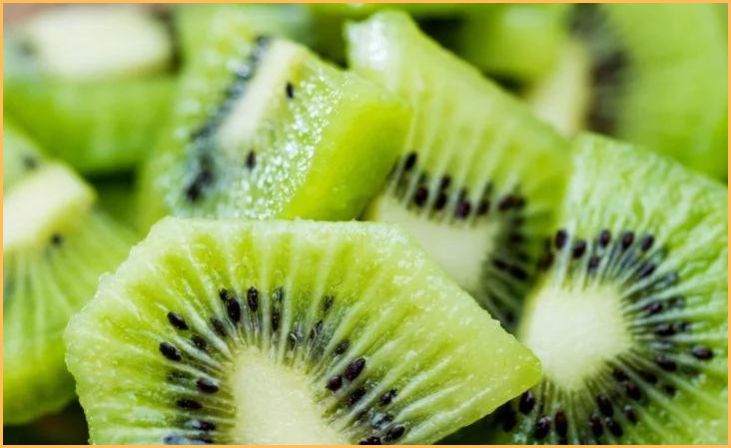
Kiwi, with its fuzzy skin and vibrant green flesh, is a nutrient-dense fruit prized for its exceptional health benefits. Loaded with vitamin C, fiber, antioxidants, and potassium, kiwi promotes immune function, aids digestion, and supports heart health.
This tangy-sweet fruit also contains vitamin K, aiding in blood clotting and bone health. Additionally, its high antioxidant content contributes to skin health and protects against cellular damage.
Kiwi is a versatile fruit, enjoyed sliced, added to salads, smoothies, or used as a natural meat tenderizer due to its enzyme, actinidin. Its unique flavor and nutritional profile make it a refreshing and delicious addition to various dishes and a convenient way to enhance overall health and well-being.
Conclusion
As this guide concludes, it leaves you equipped with insights into a variety of foods that not only nourish your body but also enhance your outer appearance. Embracing a diet rich in these nutrients isn’t just about achieving a surface-level glow; it’s about fostering overall health and vitality.
The foods you consume play a pivotal role in nurturing your skin, hair, and nails. By incorporating nutrient-dense options into your diet, you pave the way for a healthier, more radiant you. Remember, a diet focused on wholesome, nourishing foods can be your secret weapon for a vibrant and naturally beautiful appearance.
Embrace the power of these foods for healthy and shiny looks, and witness the transformative effects they bring to your overall well-being. Let your inner radiance shine through, courtesy of the nourishment and care you provide your body with every bite.
FAQs
Foods like berries, avocados, fatty fish, and nuts contain antioxidants, healthy fats, and vitamins that nourish and protect the skin, promoting a healthy complexion and fighting signs of aging.
Foods rich in omega-3 fatty acids, such as salmon, walnuts, and flaxseeds, support scalp health and hair strength, enhancing shine and preventing dryness.
Absolutely! Foods rich in biotin, like eggs, almonds, and sweet potatoes, as well as those containing iron and protein, contribute to stronger nails, reducing brittleness and promoting healthier nail growth.


